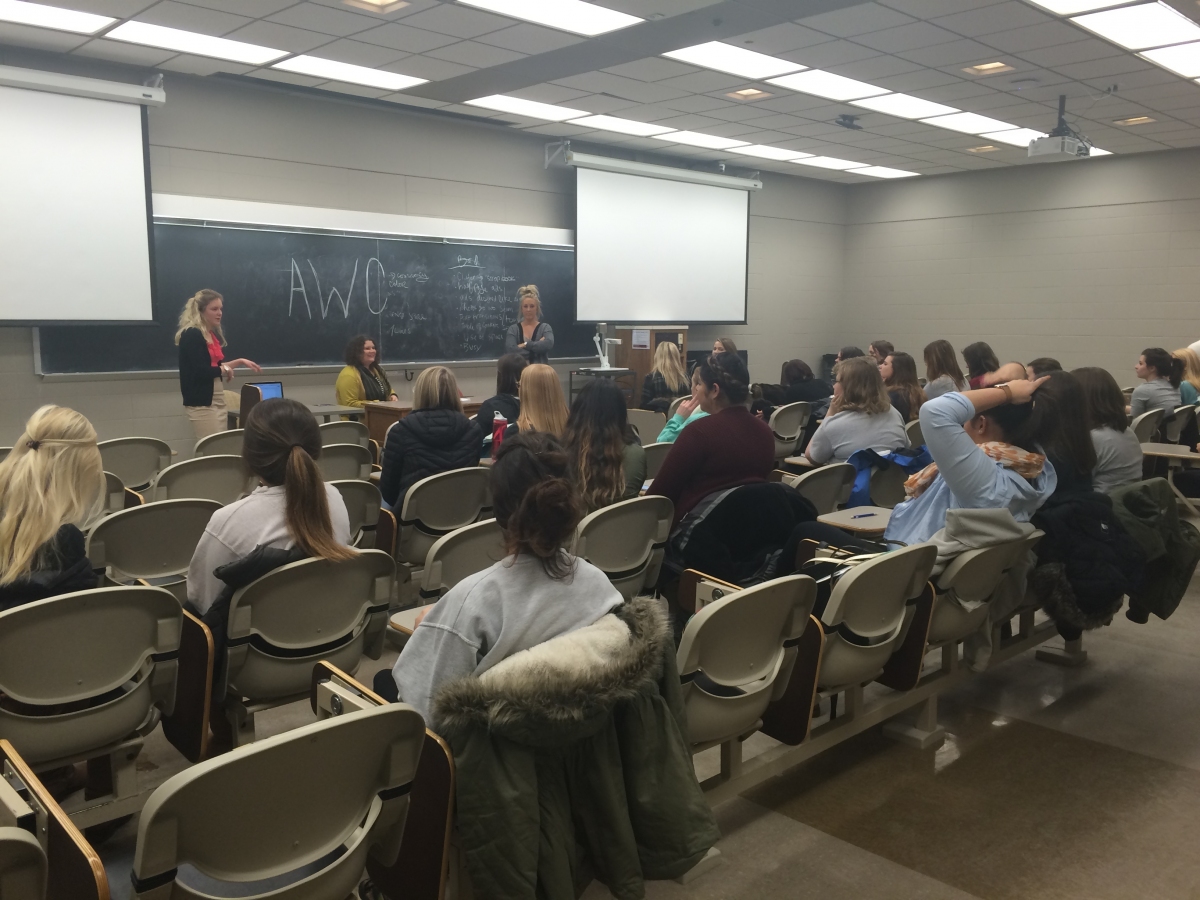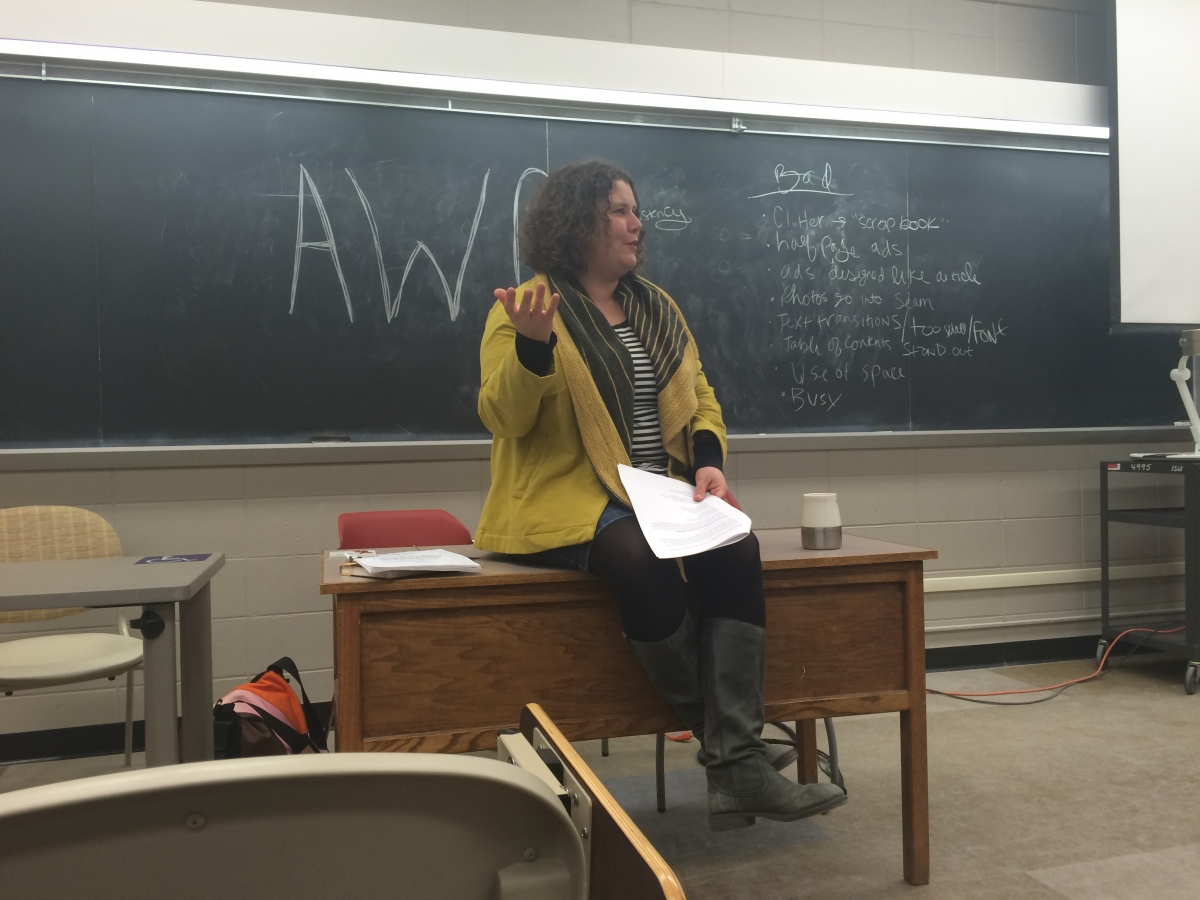
Bossy. Aggressive. Bitchy. Overbearing. These are words women fear being called in the workplace, but during the Iowa State Association of Women in Communications chapter meeting on Wednesday, Feb. 15, Dr. Abby M. Dubisar shared her belief that women should overcome their fear of these stigmatized labels.
Dubisar, an assistant professor in English, discussed strategies for negotiation, feminist rhetoric, and action with the group.
“You should see negotiation as a normal part of life,” Dubisar said. Dubisar, a published and respected educator with a PhD from Miami University Ohio, then asked the predominately female group to try to think of the last time they initiated a negotiation. One student out of those in attendance had an example. Dubisar proceeded to tell the association that she believes women should not view negotiation as a rare, ‘high stakes’ or ‘risk taking’ event, but to look at negotiation as a way to show one’s self worth.
Six things to know if you missed the meeting:
- Negotiate on your first job offer.
- If negotiations get heated or stress levels rise, ask for a five minute break, it can calm everyone involved and make negotiations smoother.
- Be someone people know they can’t take advantage of.
- Negotiations don’t have to be limited to salary— negotiate office space, hours, vacation days, etc.
- Get used to being rejected.
- Know your worth—it makes negotiating much easier.
According to the White House, women make only 78 percent of what their male counterparts make. Dubisar thinks that while there are infrastructural and institutional barriers that make it difficult for women to overcome the wage gap, educating and empowering new generations of women in the workforce to negotiate can help bring this inequality to an end.

“I want you all to know that the world can change…that’s why communication is really powerful because communication does that,” Dubisar said. Dubisar believes that women’s labor has been undervalued historically for generations and that without the belief that one can change the world, it will continued to be undervalued.
“This is the bottom line, know your worth,” Dubisar said.
The Association for Women in Communication is a national organization that, according to their website, champions the advancement of women across all communication disciplines.
“If you haven’t experienced in your career the reasons for which we may need a separate women in communications group, that’s great…however you’ll get there,” said the organization’s adviser and Greenlee School Lecturer [Lisa Munger Oakes](/). The group meets once a month but has not set a date for their March meeting. If you are interested in getting involved or learning more about the Association for Women in Communications please email the group or follow them on Facebook or Twitter.